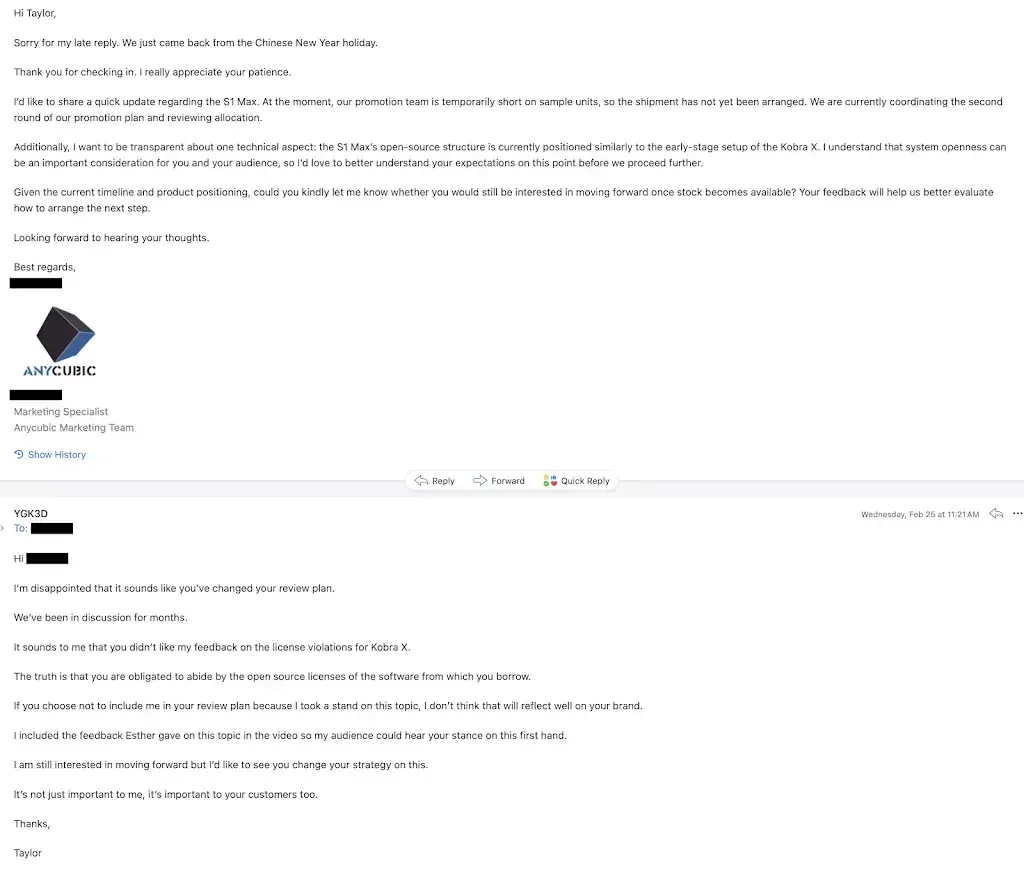Communick News
88 readers2 users here now
Communick is a professional, privacy-focused service provider who supports open source and the indieweb. We support back the fediverse and the developers by pledging 20% of our yearly profits to the main development teams.
All users from this instance are expected to follow the Code of Conduct.
At the moment, only the admins can create communities. We are still figuring out what type of content we would like to provide here, but the general guideline is that we want to build a home of good discussion about culture, sports, and anything that can inspire and elevate our spirits.
Communick also provides managed hosting for Lemmy instances if you want to run your own.
For further questions, try our support.
founded 2 years ago
ADMINS
1
2
3
4
5
6
29
3D Printer Reviewers: Being honest in this industry will put you out of a job.
(media.piefed.social)
7
13
Candace Owens' Trailer for Docuseries on Erika Kirk Conspiracy Series Sees Instant Backlash
(www.hollywoodreporter.com)
8
9
10
7
New Frostrail video delivers more survival train horror shooting plus weird underground Tomb Raider temples
(www.rockpapershotgun.com)
11
5
Political storm in Wyoming as far-right activist caught handing checks to lawmakers
(www.theguardian.com)
12
13
14
15
16
17
18
19
20
21
22
23
24
25
view more: next ›





